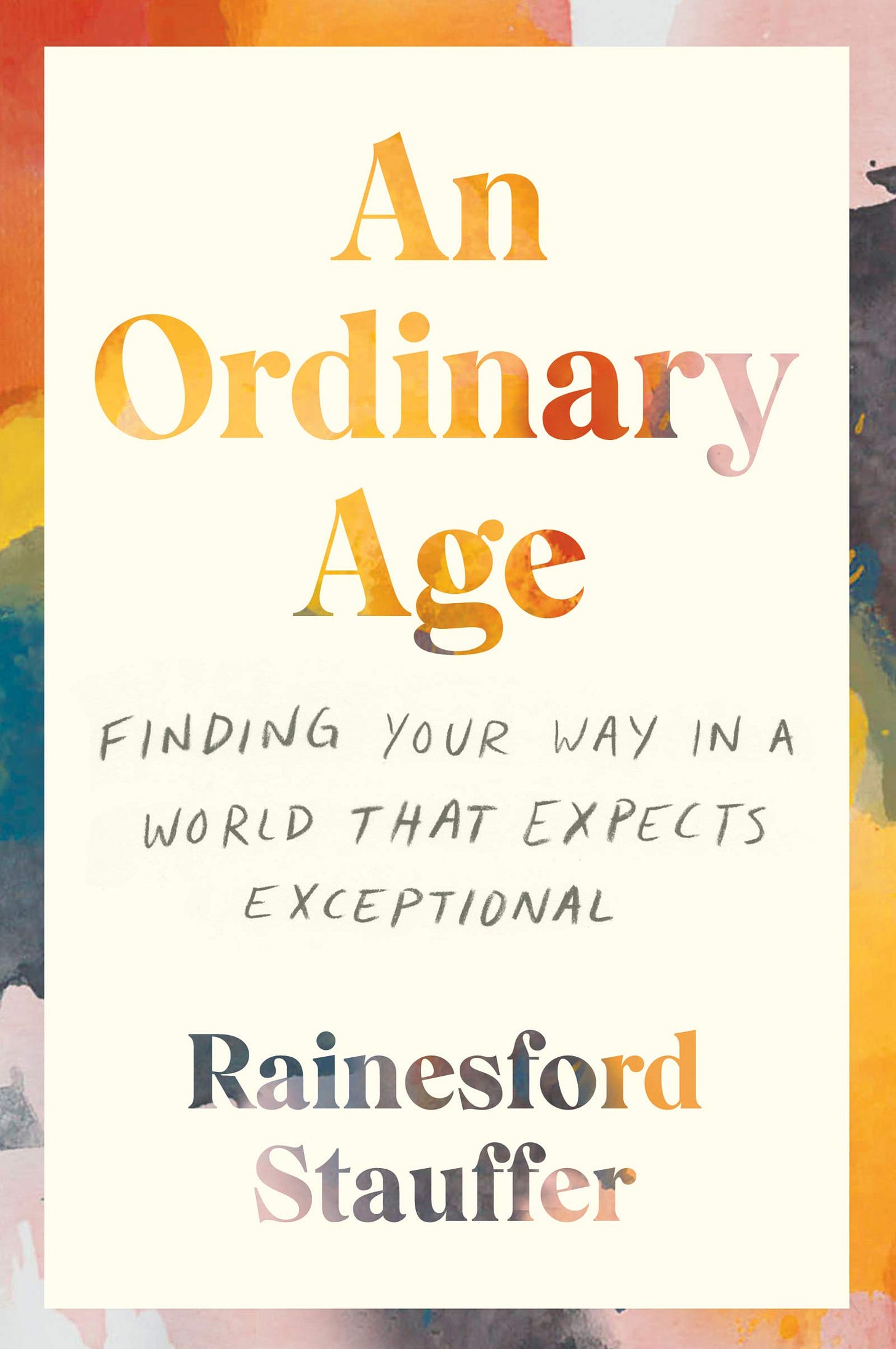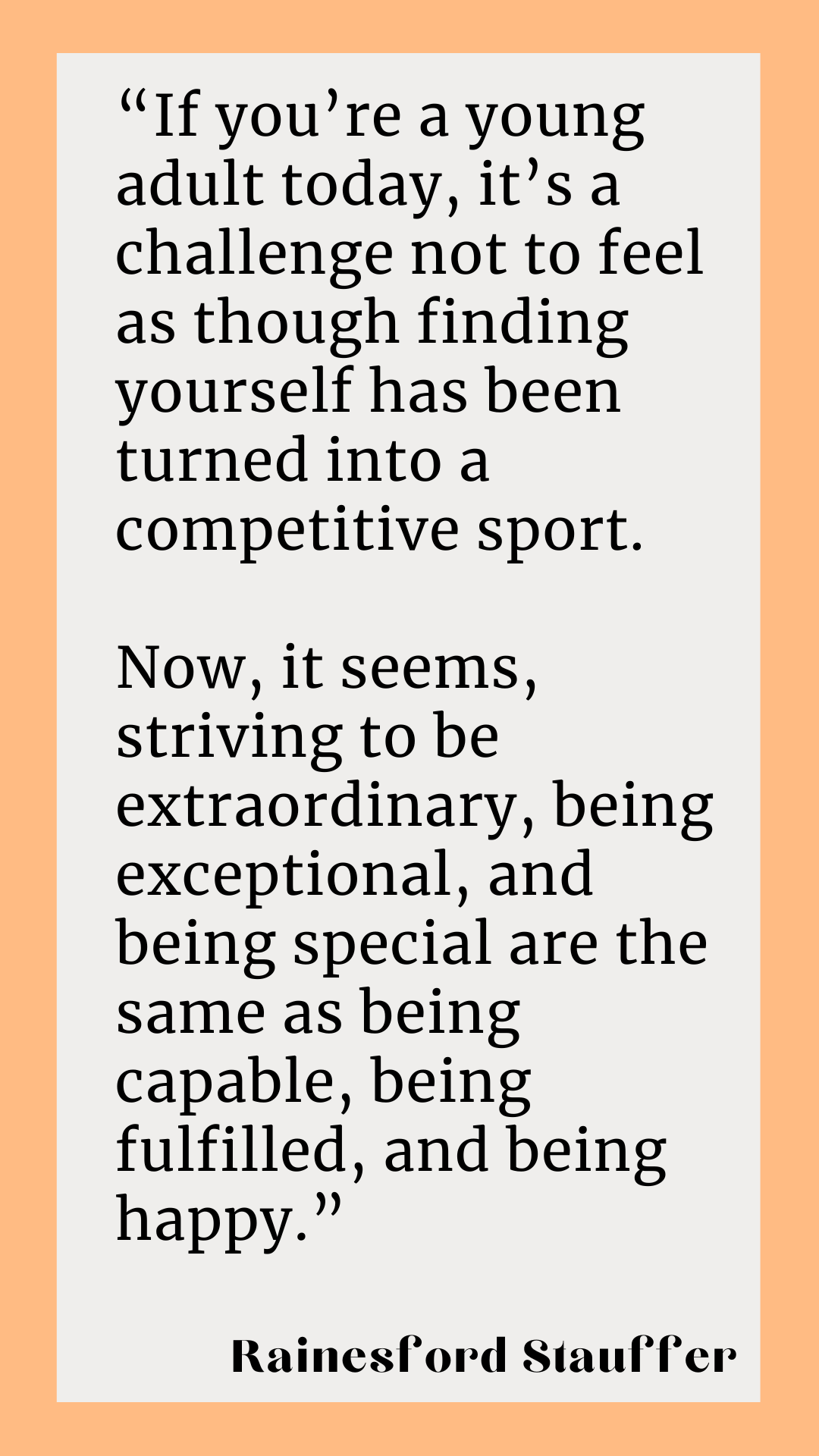An Ordinary Age

An introduction
In An Ordinary Age, journalist Rainesford Stauffer explores the pressure to know what your ‘best life’ entails and how to create it in young adulthood.
Stauffer notes that it’s implied everywhere and sometimes said explicitly by well-meaning parents and mentors to 20-somethings–These are the best years of your life.
According to Stuaffer, the pressures on young adults today can include saving a certain amount of money by a certain age, making memories before the moment has even passed, knowing what you’re good at and going after it, having the right kind of social life so you never feel lonely, and proceeding with total confidence that whatever you’re doing is the best thing you could be doing.
Stauffer hopes An Ordinary Age “gets us talking about how many of our ordinary moments and feelings are actually formative. Being contented, present, and learning as we go should move us closer to the kind of lives and world we actually want to wake up to.”
The pressure is on
Stauffer noticed that while young adults are told that they can be anything, sometimes it feels like so much effort is spent living up to the ideal of the person you could be that the person you become is an afterthought. Stauffer notes, “This pressure to know what your ‘best life’ entails, and how to create it in young adulthood, felt worthy of a closer look to see where it stems from, how it shapes young people, and what systems and power structures enable it.”
Stauffer says she, “thought about the steadiness of a partner and community when I was supposed to feel confident and proud to go it alone. A sense of self that wasn’t tethered to what I achieved or who I pleased. Framed photos of people I love in a home and a dresser in my bedroom, signs of staying instead of looking toward the horizon of the next new place.”
Stauffer wondered why there is this pressure to have your life fully figured out by the time you make it to your mid-twenties. She wondered, “Why the averageness of coming of age wasn’t talked about as much as achieving your wildest dreams.” Thus she set out to explore these themes in An Ordinary Age.
The world of work
When she examines the world of work, Stauffer notes how pursuing a ‘better’ job is a hallmark of today’s working world, with the idea that we will always be moving up in whatever we do, and if we don’t, we’re doing it wrong. Stauffer wonders, “I think about it at least once a week: how unnerving is it that so much of my identity is tethered to something I could be fired from, and how, the deeper into adulthood I get, the more I side-eye how much of my only self-perception is intertwined with work.”
Stauffer laments, “It feels like a lot of what we tell young adults about work are opposites: This is the time to experiment, chase your dreams, and prove yourself, but on the other hand, you need to be practical, prepared to do anything, and certainly shouldn’t expect anything from work.”
Stauffer provides readers with plenty to chew on.
On perfectionism
Stauffer notes that, “Young adulthood was once presented as time blocked off for making mistakes and being imperfect, because how else were you supposed to know you were trying things and experimenting and putting yourself out there in a meaningful way?”
Stauffer notes how this mindset has changed for the worse: “For today’s emerging adults trying to craft a stable, fulfilling life, caution and precision and perfection feel like the qualities closest to a guarantee that you won’t fall short of the standards you set.”
Stauffer laments, “We want to be loved as a whole person; we want to be secure as a whole person. And increasingly, it feels like that wholeness means deleting any of the flaws or missteps, as if it’s as simple as dragging an eraser across them, rubbing them out of the story we tell about ourselves.”
According to Stauffer, “It’s trying to put out a million little fires at the same time: How do you outrun your most ordinary self? How are we actually supposed to embrace ourselves as we are? How do we let it go?”




















